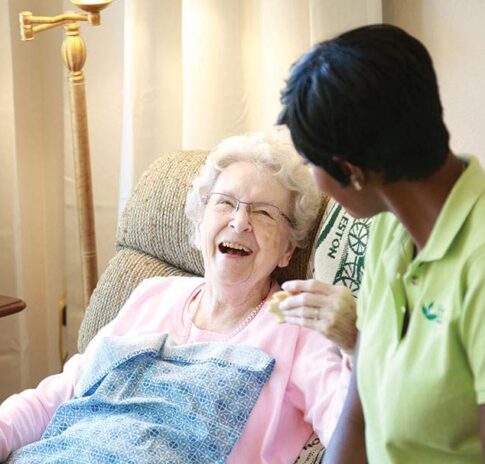Recently, a situation came to light in the Denver, Colorado news about a man who obviously was suffering from some type of dementia. The wife had left apparently due to some behavior problems and the family tried unsuccessfully to intervene. A social worker interviewed the man and found he needed a thorough assessment by a physician to determine both physical and cognitive health issues. Due to the man’s refusal of treatment, the family filed a court injunction to have him taken to a hospital for evaluation. A police officer went to the home; however, after a conversation with the man, determined he was competent and decided not to follow the court order. Obviously the outcome was tragic. This very sad situation spotlights the need for education, understanding and negotiation skills for everyone from families to law enforcement about people suffering from all types of dementia.
When initially meeting and talking with someone with dementia they can appear normal. Their sense of self-preservation gives them the ability to cover the signs and symptoms of the disease. Carrying on light conversation with family keeps the advancing symptoms temporarily hidden. Those living with or close to this person have a different view of the situation. Their perspective encompasses not simply snippets of time but entire days, weeks and months. They see the person losing ground both cognitively and physically exposing more acutely the symptoms of dementia. Concerns for the safety and well being of the person should always remain the priority.
My mother in law, Martha, who has Alzheimer’s disease, began with little to no cognitive decline. She continued to drive, live alone but began to complain about her memory which she had always been so very proud. Her ability to remember dates, numbers, and details of situations was remarkable until her dementia illness. Over the course of the last 7 years she has become increasingly forgetful to the point she nearly set the kitchen on fire with a forgotten pot of green beans at which time the family felt she was no longer safe to live in her own home. This conversation had to be handled delicately. For those of you who have had to take the car keys away or make any change to a loved one’s life knows all too well how stubborn, sensitive and ultimately intimate the discussion turns. Often it is best if another person besides the family can assist with this intervention to help bridge the emotions with reason. Geriatric care managers are educated in how to break down the fears, concerns and begin to develop a plan for the transition. Others in the community who can help are ministers and counselors who can manage the dynamics of a family meeting.
Not unlike the situation in Denver, Martha continues to decline both physically and mentally. However, with the support of family and FirstLight Home Care dementia certified caregivers she is living in our homes and having daily experiences which make her feel both purposeful and good. We reminisce together about her early childhood, raising her 6 children and how much she enjoyed cooking and baking. On good days you can see a glimmer of the Martha I first met such as when we make chicken salad or fold clothes together some Saturday’s. She has become physically frail, does not like to drink or take a bath. Our caregivers know Martha and what makes her feel good. They know she will always drink buttermilk no matter what time of day. To help her get a shower they have found she likes to pick out her own towel and set up the bathroom with her powder, perfume and makeup just as she used to at home.
Would it not be wonderful to see a cure for dementia? This has been receiving so much attention but additionally more community awareness, education and planning need to occur to have a positive impact on those suffering from dementia today. Along with the focus on a cure for Alzheimer’s disease, observing and recognizing situations around us will help more people with dementia today. Looking out for neighbors, friends, family and finding resources in your local community is the first step to better treatment and care for everyone suffering from this disease and those affected. We need to eliminate the stigma associated with dementia and work together to educate our society. As a wise man once said, you never know when it could happen to you!
